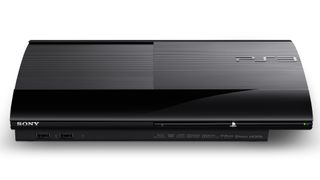Report gives sign of just how much the PS4 will cost
Too much or just right?

As Sony's Feb. 20 event inches closer, we might have our first sense of just how much the company plans to charge for its highly anticipated PS4.
According to Japanese daily Asahi Shimbun as reported by The Verge, the new system will cost over 40,000 yen, or about $428 (UK£273, AU$414).
It's unclear where the Japanese paper got its information, but the figures fall in line with previous chatter that the system will cost around $400 (UK£255, AU$387).
The Asahi Shimbun is one of Japan's major national newspapers, so it's no rag, but still take the report with a grain of salt. Or a shot of sake, whichever you prefer.
You can also check out our PS4 rumours video below for more info.
PS points
The paper also mentions a 2013 launch for Japan and the U.S., though there's no reference of a European release date.
As for the controller, Asahi Shimbun's report also backs up claims that it will feature a touch pad while being similar in size to the current Dual Shock 3 model.
Get daily insight, inspiration and deals in your inbox
Get the hottest deals available in your inbox plus news, reviews, opinion, analysis and more from the TechRadar team.
Going back to the price, there's no way to know until official announcements just how much it will cost in different regions, but the paper's report gives us a realm to work with.
Sony launched the most expensive version of the PS3 for $599 in the U.S. in 2006, while the cheapest version now costs $269 stateside (that's 60,000 yen and 24,980 yen in Japan, respectively).
In the U.S., the basic Wii U costs $299.99 while the Deluxe model goes for $349.99, so while the PS4 might not be able to compete on the price front, its rumored price isn't too outrageous, especially if its specs stack up.
Michelle was previously a news editor at TechRadar, leading consumer tech news and reviews. Michelle is now a Content Strategist at Facebook. A versatile, highly effective content writer and skilled editor with a keen eye for detail, Michelle is a collaborative problem solver and covered everything from smartwatches and microprocessors to VR and self-driving cars.
Most Popular



